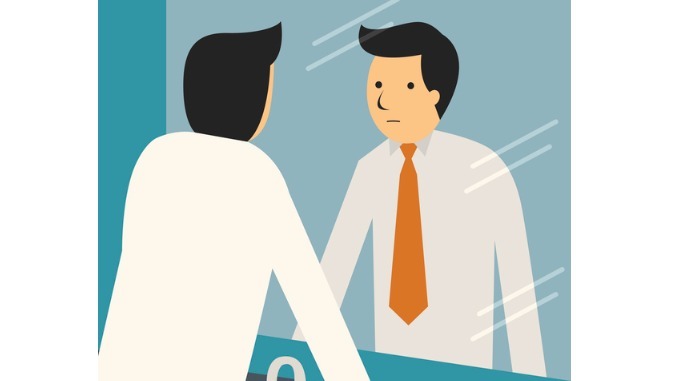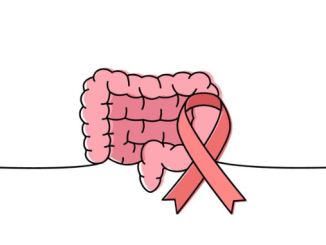
As reported by NHS England, The NHS is partnering with leisure centres to encourage gym-goers to look for potential signs of cancer with reminders in changing rooms
Stickers reminding people to check themselves regularly are set to feature on mirrors in more than 240 leisure centres run by Better, the UK’s largest leisure charitable social enterprise.
The eye-catching stickers will feature the message ‘Check you out’ and ‘Know what’s normal for you’ before reminding people that if something in their body doesn’t feel right, to contact their GP practice.
The scheme is the latest push by the NHS to find cancers at an earlier stage, with Better joining several other partners, such as supermarkets and washroom hygiene specialists, to highlight cancer messages to the public in relevant everyday situations.
The new initiative comes as a survey of more than 2,000 people by Better found that only 55% of respondents check their bodies for physical changes regularly (at least once a month), and one in ten (12%) don’t check at all.
Professor Peter Johnson, National Clinical Director for Cancer at NHS England, said: “Finding cancer early is key to successful treatment and survival, and this means that we need people who have new symptoms to come forward as soon as they spot them. This is why it’s vital that people are aware of their bodies, take notice of any change from what is normal for them, and get it checked out immediately.
“The partnership with Better helps us to reach more people and remind them to check themselves at a time and a place that works for them. It’s a simple thing that anyone can do, but it really can save your life.”
Joe Rham, Customer and Communities Director for GLL, the not-for-profit charitable social enterprise that runs Better leisure centres, said: “Our aim is to improve health and wellbeing in local communities and we’re delighted to be partnering with NHS England in this vital campaign.
“The survey we conducted clearly indicates a need to raise awareness of potential signs of cancer and the mirror stickers will hopefully act as a timely reminder to our customers to check themselves regularly.”
NHS staff are working hard to see and treat more people with cancer than ever before, with over 50,000 patients starting cancer treatment in June – more than nine in ten within one month – and over a quarter of a million people referred for urgent cancer checks.
The NHS also met the 28-day faster diagnosis standard for the second month in a row in June with more than three quarters of patients (76.3%) – almost 200,000 people – receiving the all-clear or a definitive diagnosis within four weeks.
Lending her support to the scheme, Demi Jones, ex-Love Island reality TV stars, said: “I was just 22 years old when I received my thyroid cancer diagnosis after I found a lump on my neck. I contacted my GP practice straight away to get it checked out and I was quickly referred for further testing that led to treatment by the incredible NHS team in Portsmouth. I’m now living life cancer free and would urge anyone who notices an unusual change not to delay and speak to their GP as they are there to help. It really could save their life, as it did mine.”
The survey by Better also found that 59% of respondents are aware of the symptoms of breast cancer – the highest awareness across the UK’s most common cancers. That is followed by skin (50%) and bowel (47%). Worryingly, one in five (20%) said they are not aware of any potential cancer signs – particularly among the younger age groups. 33% of those aged 18-34 said they were not aware of any symptoms, compared to 16% of those aged 35 or over.
Of those surveyed, 68% of females and 56% of males said they would recognise a lump or swelling in a part of their body as a possible early sign of cancer and would seek medical advice.
Rhiannon Morgan, 38-year old regional health manager for Better in London and Surrey, was diagnosed with breast cancer after finding a lump during a hiking holiday in Canada in 2019.
She said: “When I found the lump, I was alarmed but I had no other symptoms and felt perfectly well so I wondered if it was just where my rucksack had rubbed against the skin.”
“Eight weeks later, test results showed that the lump was cancerous, so I needed chemotherapy and underwent a mastectomy during lockdown. Now I’m living cancer free and I would advise other people to know what’s normal for your own body and get yourself checked if something doesn’t seem right.”
David Bateson, 49 from Ampthill, Bedfordshire, was diagnosed with melanoma after going to his GP about a bleeding spot on his scalp. He’d noticed the spot wasn’t healing and his wife, a nurse, encouraged him to get it checked. After being referred to a specialist for a biopsy, David was told it was cancerous and within months had surgery to remove it. Despite the cancer returning the following year, immunotherapy has meant that he is now cancer free.
David said: “I am living proof that early diagnosis is so important. Although I never dreamt that this spot on my head would end up being skin cancer, it turned out to be one of the most aggressive types. I dread to think what would have happened if I’d not gone to my doctor when I did.
“I think these stickers are a great idea. I play football at my local leisure centre, and – when you’re in the changing room or showering – it’s the perfect place to think about changes in your body, so it’s the ideal setting to remind people to be aware.”



Be the first to comment